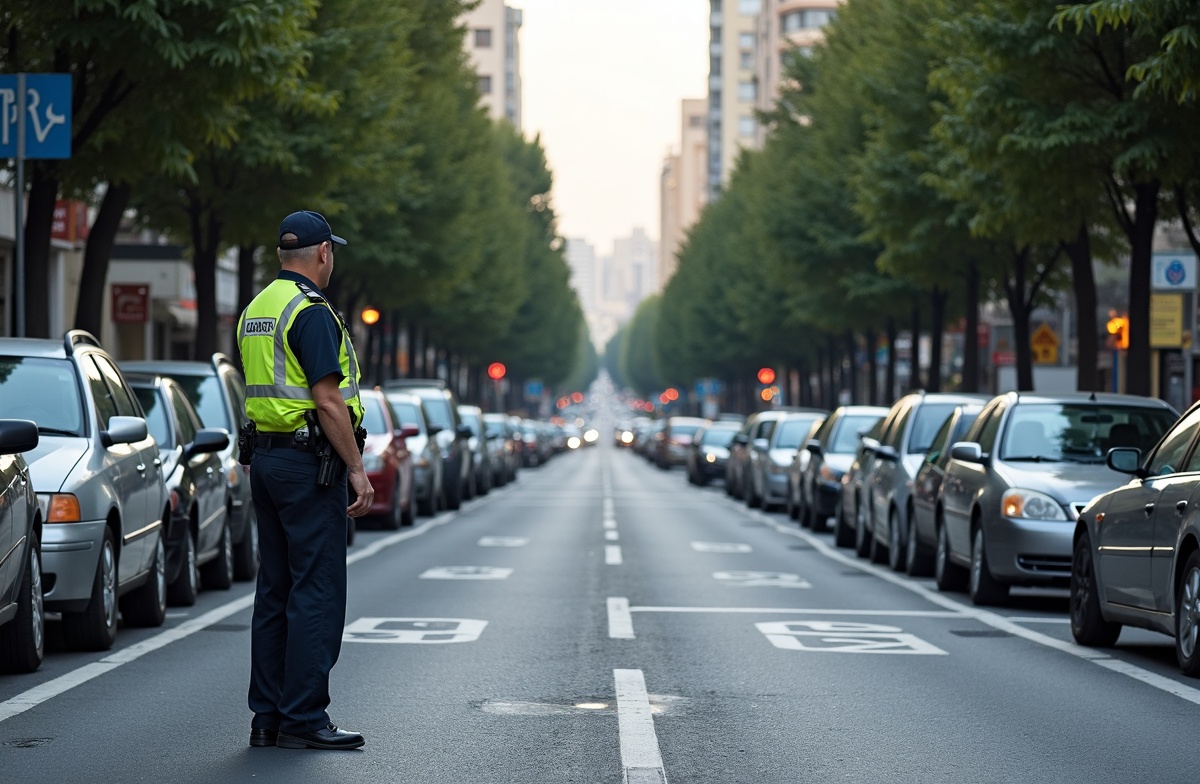Parking and Fines: Rules You Need to Know
Reading time: 5 minutes
- Principles of parking in Israel and the importance of following rules.
- Types of parking and their markings.
- Prohibited parking zones and fines.
- Fine amounts and the appeal process.
- Practical tips for drivers.
Article Contents
- Main types of parking and their markings
- Where parking is strictly prohibited
- Fine amounts and appeal procedure
- How to avoid problems: practical tips
- Conclusion
Main types of parking and their markings
The first thing a driver encounters is finding a permitted spot. In Israel, there are clear visual markings. A blue stripe on the curb indicates paid parking (“Hatzaga”), with times and rates regulated by local authorities. A white stripe usually means free but time-limited parking, often with signs indicating the time limit. Red and red-white stripes strictly prohibit stopping and parking. There are also widespread parking spots for disabled people and neighborhood residents (“toshavi ha-shchuna”), which require special permits. Ignoring these zones is a sure way to get a fine.
Where parking is strictly prohibited
There are zones where parking creates a direct safety threat and blocks traffic. It is strictly forbidden to leave a vehicle at pedestrian crossings (“zmar-hevra”), bus stops, in tunnels, and on bridges. Special attention should be paid to parking near building entrances or driveway exits – this can block emergency services. Parking closer than 12 meters from an intersection is also a violation. Even a brief stop in these places can lead to an immediate fine and vehicle towing at your expense.
Fine amounts and appeal procedure
The fine amount depends on the severity of the violation. Blocking traffic or parking in a disabled spot without a permit will cost significantly more than simply exceeding the time limit in a paid parking lot. All fines arrive by mail and can be paid online, at a bank, or at the post office. If you believe the fine was issued unfairly, you have the right to file an appeal (“ar’ya”) with the municipality that issued the ticket. It’s important to do this within the established timeframe, attaching photos and other evidence of your case. Remember that unpaid fines can block your ability to leave the country.
How to avoid problems: practical tips
The best strategy is prevention. Always carefully read road signs and look at the markings. Use official parking apps that show available spots and allow remote payment for parking. If you’re looking for housing, pay attention to the availability of parking, which can be checked in listings in the Real Estate section. Plan your route in advance, especially in unfamiliar areas. And most importantly – if you’re unsure whether you can park somewhere, it’s better to find another, 100% legal spot. This habit will save you money, time, and nerves.
Conclusion
Knowing parking rules is an essential part of comfortable and safe living in Israel for every driver. Following these norms helps avoid financial losses and promotes order on the roads. We’ve covered the main types of parking, strictly prohibited zones, fine amounts, and provided practical recommendations. We hope this information makes your driving more peaceful. And remember, when you post any ad – whether it’s selling items in the Classifieds section, looking for jobs, or offering your services – our platform automatically translates your text into the four main languages of the country. This means your message will be instantly available to Russian speakers, Hebrew speakers, Arabic speakers, and English speakers, maximizing your audience reach.
Frequently Asked Questions
1. How to know if I can park in a specific place?
Pay attention to road signs and markings, and use parking apps for up-to-date information.
2. What to do if I received a fine?
Fines arrive by mail, they can be paid online or appealed within the established timeframe.
3. How to avoid vehicle towing?
Follow parking rules and strictly monitor signs indicating prohibited zones.
